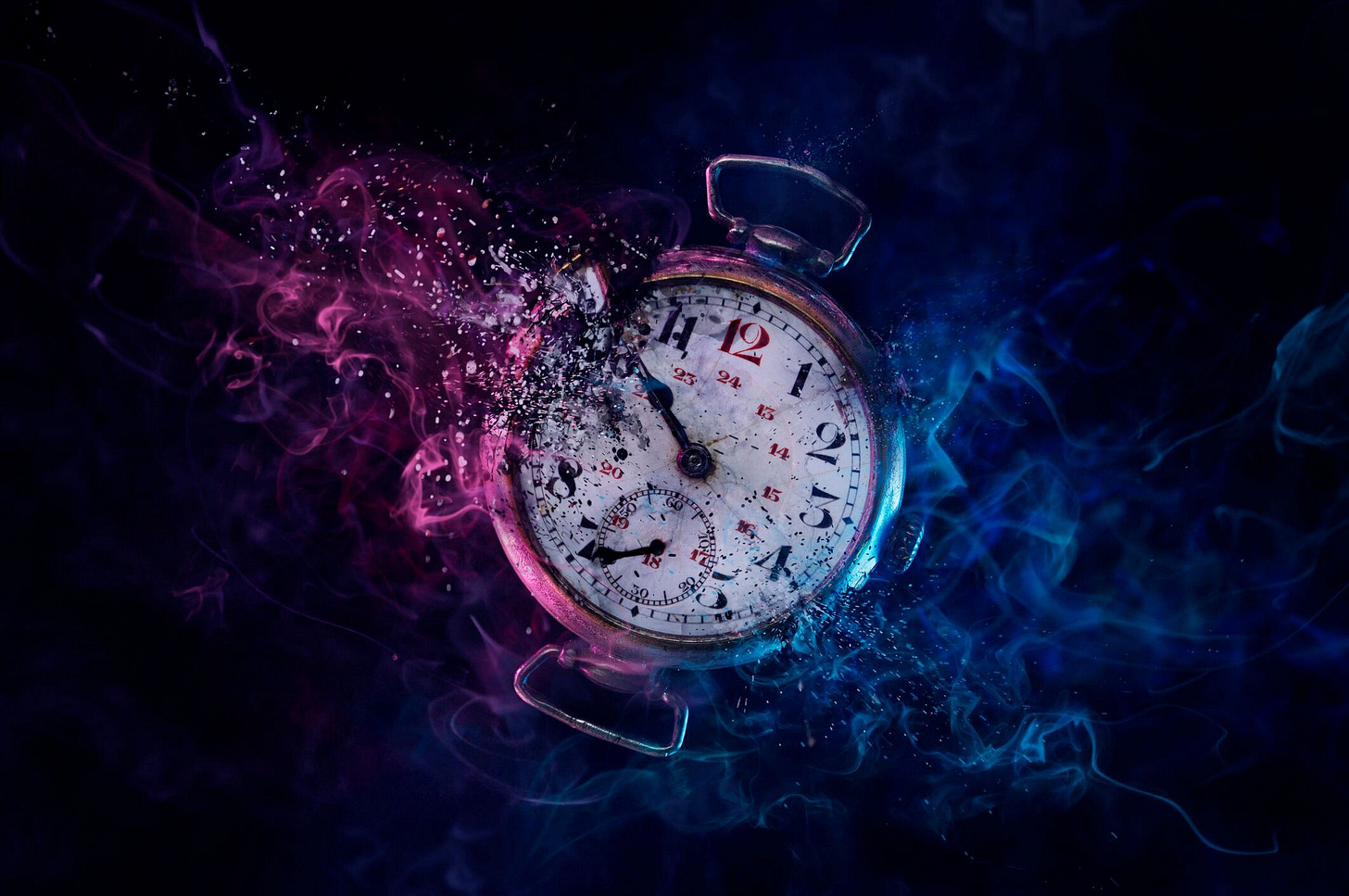What is time, according to the Vedas?
Did you ever stop to think what exactly time is? What is this force that makes everything change and witter?
Did you ever stop to think what exactly time is? What is this force that makes everything change and witter?
According to Srimad Bhagavatam, time is the energy that puts the whole material manifestation in motion. The influence of time leads to the transformations that create and destroy all living beings and material objects. Due to the influence of time, everything is created at a certain point due to certain transformations, and these transformations continue until its death or destruction. Because of time, everything that is material has a beginning and also an end, just like the universe itself. Everything spiritual, however, passes through no transformations and thus has no beginning and no end.
Krsna explains this in the Bhagavad-Gita (2.16) with the words nāsato vidyate bhāvo nābhāvo vidyate sataḥ. "Those who are seers of the truth have concluded that of the non-existent there is no endurance and of the eternal, there is no change."
By non-existent (asat), Krsna refers to everything that is material, and by eternal (sat), Krsna refers to everything that is spiritual. Srila Prabhupada explains that non-existent or "asat" in this context doesn't mean false, but temporary or illusory.
Prabhupada explains more about time in his purport:
"The complete universe is a manifestation of varieties of entities, beginning from the atoms up to the gigantic universe itself, and all is under the control of the Supreme Lord in His form of kāla, or eternal time. The controlling time has different dimensions in relation to particular physical embodiments. There is a time for atomic dissolution and a time for the universal dissolution. There is a time for the annihilation of the body of the human being, and there is a time for the annihilation of the universal body. Also, growth, development and resultant actions all depend on the time factor. Vidura wanted to know in detail the different physical manifestations and their times of annihilation."
Although the universe exists for a limited amount of time, which we can calculate (311.04 trillion years), the cycles of creation and destruction of the material universes go on following the breath of Mahā-Vishnu. Time is thus eternal in the sense that these cycles of creation and destruction have been going on since time immemorial, and it is not possible to trace when it all began. Time is also eternal as an energy, being one of the divine spiritual energies of the Lord. That's why material time is also called "eternal time". However, although time is eternal as an energy, its effect on matter, generating the material universe,s has a beginning. Similarly, the soul is "eternally conditioned" in the sense that it is not possible to trace the beginning, but not literally in the sense that we were never out.
In his purport, Prabhupada explains that time, as an energy is impersonal, although it also has a personification in the form of Kāla, just like all other energies of the Lord have their predominating deities. Time has thus both aspects simultaneously.
Apart from the material time, or eternal time, there is the absolute time of the spiritual planets. This absolute time is continuous, without past and future. Everything spiritual simply exists, without a beginning and an end, without past and future. There is time in the spiritual world in the sense that the inhabitants live one day after the other, but there is no time in the sense of an oppressive force that makes everything change and eventually be destroyed. Time as past, present, and future is something that exists only in the material world. In the spiritual world, there is just an eternal present.
Apart from being characterized by past, present, and future, material time is also cyclical. The material creation goes through cycles of creation and destruction and in each cycle, the same basic events repeat. This happens on each cycle of four eras (Satya, Treta, Dvāpara, and Kali-yuga), in a day of Brahma, and in each complete cycle of creation.
The perception of time is also relative, being different in different regions of the cosmos. This brings the possibility of traveling to the future by going to a higher planet, where time is perceived as going faster than here. One example of this, narrated in the Mahabharata, is the story of King Kakudmi, who once went to Brahmaloka with his daughter Revati to ask Lord Brahma about a suitable husband for her. After spending just what seemed to be a few minutes in Brahmaloka, Brahma explained to him that millions of years had passed on Earth, and all the suitors he was considering were already dead. The story has a happy ending, however, because Balarama was on the planet at the time, and Brahma told him to give Revati in marriage to Him.
Many books and movies speculate about the possibility of traveling to the past, but the Vedas explain that this is impossible. Time is the divine energy of the Lord, and we can't go against it. It's possible, however, to travel to the "past" by going to the future to a point where the events of the past repeat. One can go from Treta-yuga to Satya-yuga by going to Brahmaloka and waiting for a few seconds there until the next Satya-yuga starts.


